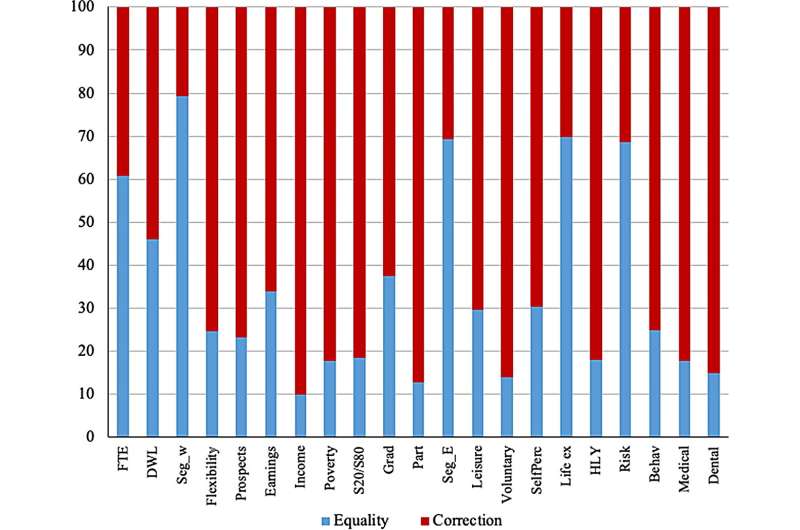An extended critique of the EIGE Gender Equality Index

New research by staff from Social Statistics has reviewed the methodology of one of the most comprehensive indices of gender equality, the Gender Equality Index by the European Institute for Gender Equality (EIGE).
The research shows that in addition to the use of the correcting coefficient, other methodological choices (such as the use of ratios and geometric means) result in an unjustified penalization of lower-GDP countries and the reinforcing of biased assumptions about gender equality progress.
The research calls for greater transparency around theory, method and the relationship between the two while also proposing methodological improvements.
These changes would bring the EIGE index closer to fulfilling its potential to provide a nuanced understanding of gender equality levels in the European Union and effectively inform policy development toward social change.
The paper is published in Social Indicators Research.
More information: Caitlin B. Schmid et al, "Why Call It Equality?" Revisited: An Extended Critique of the EIGE Gender Equality Index, Social Indicators Research (2023). DOI: 10.1007/s11205-023-03126-5
Journal information: Social Indicators Research
Provided by University of Manchester Gender assumptions harm progress on climate adaption and resilience
No comments:
Post a Comment